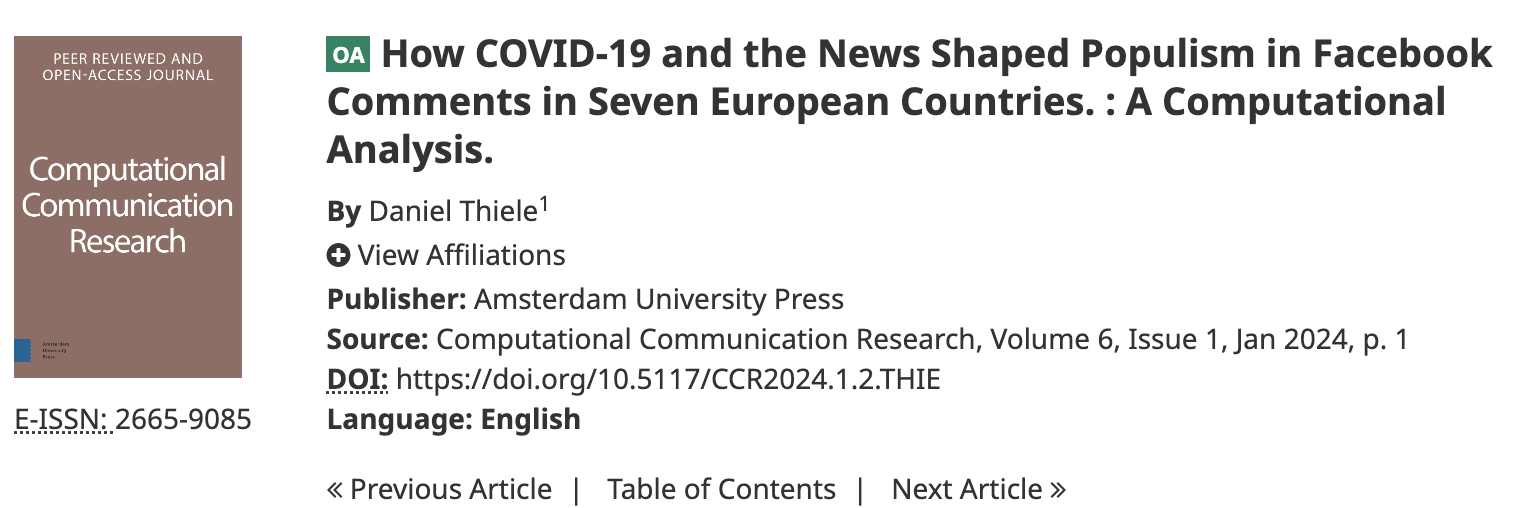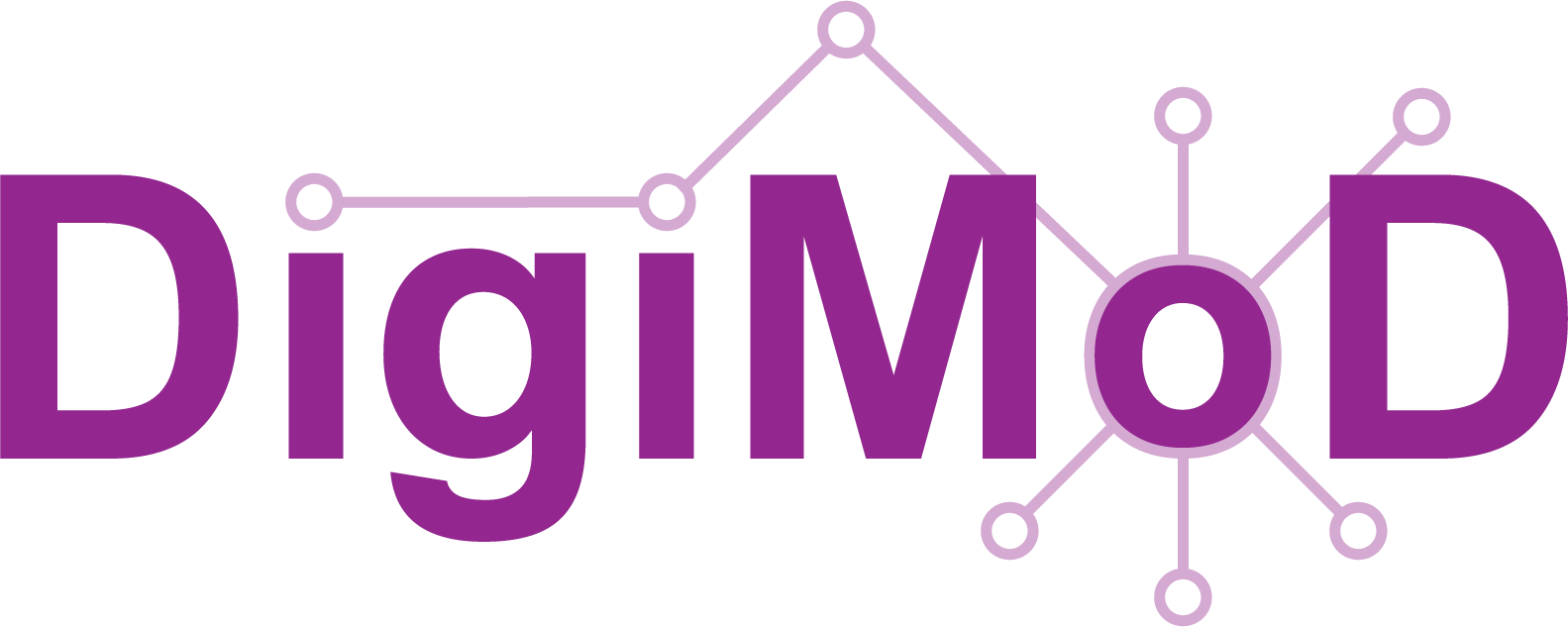Citizen-generated populist content is flourishing in the comments sections of online news. The factors that shape the extent of such populist communication from below are still under-researched. The recent publication of Daniel Thiele (Freie Universität Berlin & Weizenbaum Institute, Berlin) focuses on the COVID-19 crisis to examine how contextual and media-related factors are related to the extent of populism in comment sections on Facebook pages of news outlets from seven European countries (AT, DE, FR, IT, NL, SE and UK).
Titled “How COVID-19 and the News Shaped Populism in Facebook Comments in Seven European Countries. A Computational Analysis.” the paper addresses the gap in understanding the factors that shape the populist communication from below. The study analyzes a multilingual dataset from seven European countries – Austria, Germany, France, Italy, the Netherlands, Sweden, and the United Kingdom. The data comprises of 65,258 posts and 3.4 million user comments published between February 2020 to June 2021. Daniel leveraged machine translation and the computational text analysis method ‘Distributed Dictionary Representation’ (Garten et al., 2018), implemented in his R-Package ‘dictvectoR’ to measure populism in comments. Multilingual dictionaries were used to capture post characteristics. Bayesian multilevel regression was used for testing the hypotheses. All computational measurements were rigorously validated against annotations by native speakers.
The results show that posts referring to the government, experts, COVID-19, and restrictions exhibit higher levels of populism in the comments sections. The stringency of containment policies was positively associated with populism in Germany, Austria, and the Netherlands when COVID-19 was mentioned. The study also explores the relationship between media-related factors and the extent of populism. Contrary to expectations, lower levels of populism were observed in comment sections on Facebook pages operated by tabloid media outlets. Additionally, posts where news outlets engaged in visible moderation exhibited lower levels of populist discourse, indicating the potential efficacy of proactive content moderation strategies in mitigating the spread of populist sentiments.
The full paper is available as an open access publication. The paper, “How COVID-19 and the News Shaped Populism in Facebook Comments in Seven European Countries. A Computational Analysis.” was published in the journal Computational Communication Research and can be found here: https://doi.org/10.5117/CCR2024.1.2.THIE
Replication code and data is provided on OSF. The dictvectoR package is available on GitHub.
This research was supported by the Kaiserschild Foundation, the Austrian Federal Ministry of Education, Science and Research through an OeAD Marietta Blau-Scholarship [MPC-2021-02005], and the German Federal Ministry of Education and Research under grant number 16DII135.

